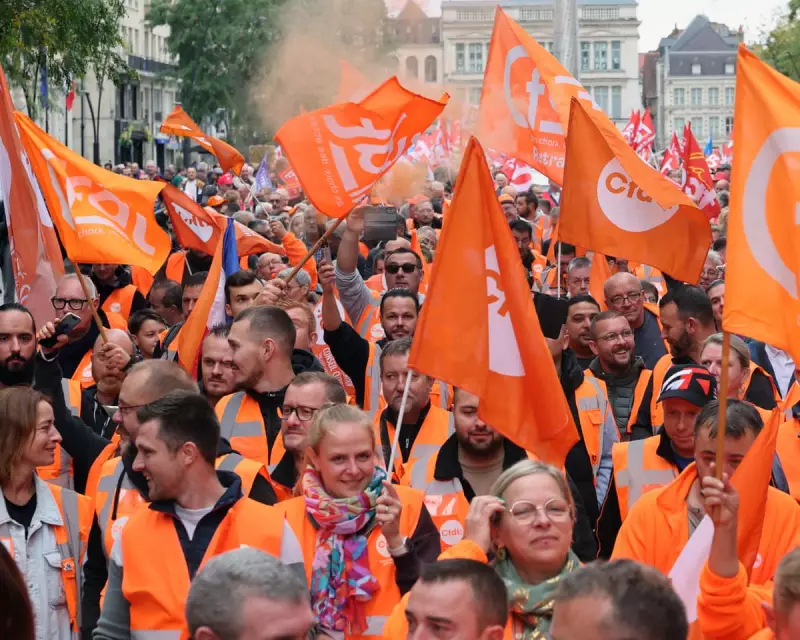
France faced widespread disruption on Thursday as a tidal wave of industrial action and mass protests swept the nation, in a powerful rebuke to Prime Minister Gabriel Attal's controversial austerity budget.
Hundreds of thousands of public sector workers, from transport and education to energy and healthcare, walked off the job, bringing significant parts of the country to a standstill. They were joined on the streets of Paris, Marseille, Lyon, and other major cities by vast crowds of demonstrators in one of the largest coordinated actions against the government's economic policy.
A Nation United in Opposition
The scale of the discontent was immense. National rail services were severely crippled, with only a skeleton service running on many lines. Air travel faced major cancellations, and in major metros like Paris, subway service was described as "quasi-inexistent." The disruption was a tangible sign of the deep-seated anger at the government's plan to slash public spending by €12 billion.
Union leaders, addressing the massive crowds, declared the day a resounding success. They warned the government that this was merely a starting point, signalling a long and bitter winter of discontent if their demands are not met.
The Heart of the Dispute
At the core of the protests is the 2025 finance bill, which unions argue will strangle essential public services, freeze salaries, and jeopardise jobs. The proposed cuts are seen as an ideological attack on the very fabric of the French welfare state, coming on the heels of other contentious reforms.
Protesters carried banners with slogans like "Stop the Cuts" and "Attal, Your Budget is Making Us Poor," channelling a fear that the austerity measures will disproportionately affect the most vulnerable in society and erode hard-won workers' rights.
Government Digs In Amid Rising Pressure
Despite the overwhelming show of public dissent, Prime Minister Attal's administration has so far refused to back down. The government defends the budget as a necessary measure to curb the national deficit and ensure economic stability, in line with EU rules.
However, political analysts suggest the government is playing a dangerous game. The sheer size of the protests echoes the early days of the gilets jaunes (yellow vests) movement, presenting Attal with the most severe political crisis of his premiership to date. All eyes are now on the Élysée Palace to see if President Macron will intervene or allow his prime minister to face the storm alone.
With union leaders promising to ramp up pressure, the streets of France look set to become the battleground for a defining struggle over the country's economic future.





